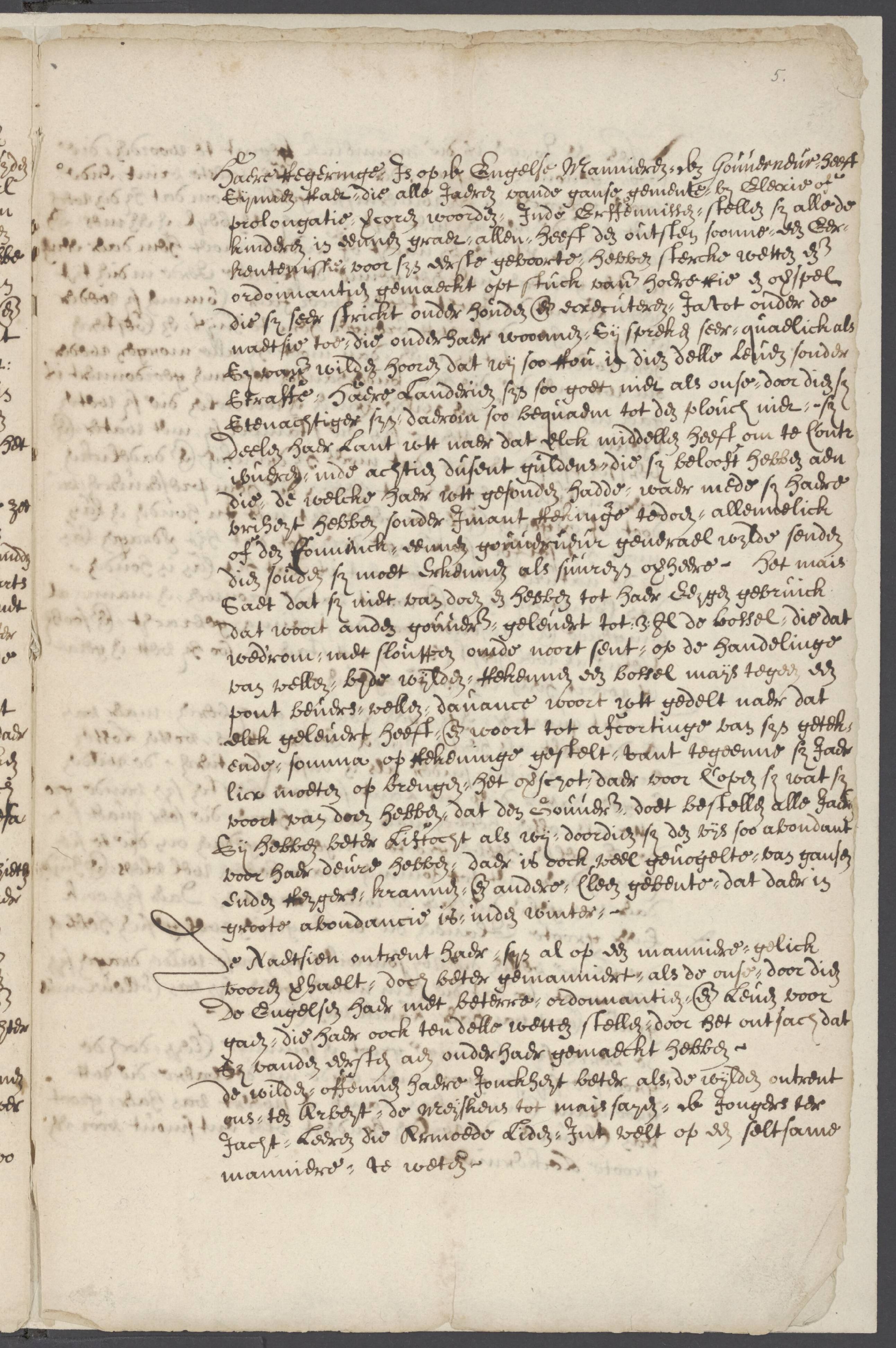New Netherland in 1627. Letter from Isaack de Rasiere to Samuel Blommaert.
Per National Archives of the Netherlands: Incomplete. At least four pages are missing. Retrieved from the Royal Library of the Netherlands, 1866.
Per translator J. Romeyn Broadhead: “found in the Royal library at the Hague, and transmitted by Dr. M. F. A. G. Campbell to the N. Y. historical society.” Tr. from the original Dutch by J. Romeyn Brodhead. [NAHC note: Since 1866 the manuscript has been kept in the Nationaal Archief, The Hague: The original manuscript pages/images can be found here: https://www.nationaalarchief.nl/onderzoeken/archief/1.05.06/invnr/2; 1.05.06 Inventory of the Collection of Scattered West Indian Pieces, 1614-1875
An additional transcript is available in "Indian Stories: The Earliest Descriptions of Indians Along the Hudson River" (1609-1680), edited by Kees-Jan Waterman, Jaap Jacobs, and Charles T. Gehring. Zutphen, 2009.


